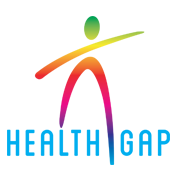Be well informed!
The Council on Black Health (CBH) remains committed to the advancement of the health and well-being of Black children, adults, families, and communities. CBH generates and uses research findings to develop and evaluate novel solutions that work in metropolitan areas with large Black populations as well as in rural Black communities. We have identified the facts and links below to provide reliable information as you live through and cope with the 2019 Novel Coronavirus (COVID-19) pandemic. Unfortunately, misinformation is rampant!
COVID-19 is real. You will see or hear reports that this is a hoax or that government officials are overreacting, or that this doesn’t affect Black people. Don’t believe these untruths. Discourage others from believing them and spreading them. Due to the racism and discrimination that have harmed and still do harm the Black population, Black people may see many reasons to distrust government health advice. But please understand that Black people are at risk for COVID-19, like any other person on this planet. Everyone, regardless of race, class, gender, sexual orientation, ability and any other identity, is at risk for COVID-19.
Black people are not immune to COVID-19. Please help to stop spreading this dangerous misconception, which is circulating widely. It is NOT true, although such myths of this type have been spread before with fatal consequences. Read the story posted by CityLab: Read More
COVID-19 did not create the health inequities among Black communities. But it will make existing daily challenges worse, especially for those who are poor, have limited incomes, or lose their incomes because of the closures of businesses due to COVID-19 precautions, or who are incarcerated in jails and prisons, have physical or mental disabilities, or underlying illnesses that make them more vulnerable. Black communities have higher rates of heart disease and stroke, diabetes, hepatitis B, chronic obstructive pulmonary disease, chronic kidney diseases, and cancer.
Manage your current health conditions. The best thing you can do to prevent this virus is to stay at home as much as you can, eat healthy foods, wash your hands often, and limit your contact with others. When you must have contact, keep your distance. It is not impolite during this situation.
Support your family members and friends. Community support and mutual aid are backbones of Black communities. Continue to come together in the digital space or at a distance, to share trustworthy information on this pandemic. We know it may be hard to know what is real and what is not, and whom to trust. We offer the following resources that we ourselves trust. We hope you find something helpful here and will share it with your family, friends and neighbors.
Finally, this is a rapidly changing situation.
- Experts and policy makers are learning a lot as the crisis goes on.
- It is important to get a trusted source and stay informed on new developments.
- Be aware that there are no clearly effective vaccines or medications yet, but they are in the works.
- AND, beware of treatment or financial scams.
Resources:
- Roland Martin Unfiltered “Fact Vs. Fiction: Black Doctor Debunks Coronavirus Myths & Misinformation” : https://www.youtube.com/watch?v=i5nu0HBg5tk&feature=youtu.be
- BMC “Dr. Zandraetta Tims-Cook on COVID-19”: https://vimeo.com/398123656
- Poor People’s Campaign “Poverty Amidst Pandemic: A Moral Response to COVID-19”: https://www.poorpeoplescampaign.org/poverty-amidst-pandemic/
- Dr. George Benjamin, Executive Director of the American Public health Association, explains: “Public health expert says African Americans are at greater risk of death from coronavirus”: https://theundefeated.com/features/public-health-expert-says-african-americans-are-at-greater-risk-of-death-from-coronavirus/
- American Public Health Association provides latest guidance and information: https://apha.org/topics-and-issues/communicable-disease/coronavirus
- The CDC (Centers for Disease Control and Prevention) offers tips on how to protect yourself and what to do if you are sick: https://www.cdc.gov/coronavirus/2019-ncov/index.html
- The WHO (World Health Organization) offers the latest updates on this global pandemic: https://www.who.int/emergencies/diseases/novel-coronavirus-2019
- Johns Hopkins University Coronavirus Resource Center and Interactive Map: https://coronavirus.jhu.edu/
- The National Black Child Development Institute provides links to resources for educators and advocates who serve children and families. https://www.nbcdi.org/coronavirus-resources-and-recommendations
- Resources from governmental agencies: https://nnedv.org/latest_update/resources-response-coronavirus-covid-19/

